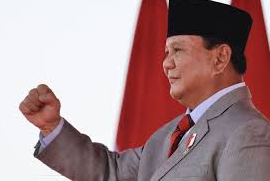The new fund will manage assets from state-owned companies and is set to play a key role in boosting Indonesia’s economic trajectory.
Indonesia Unveils Sovereign Wealth Fund Danantara with Ambitious Growth Target
On February 24, Indonesia launched its new sovereign wealth fund, Danantara, with the goal of driving economic expansion to an ambitious 8% growth during President Prabowo Subianto’s first term. The initiative is expected to be a key pillar in boosting the nation’s economy, as it will focus on managing and investing the assets of Indonesia’s state-owned enterprises (SOEs).
Danantara, short for Daya Anagata Nusantara, will primarily act as a holding company and investment vehicle for various state-run corporations, including prominent firms such as Bank Mandiri, Bank Rakyat Indonesia, Pertamina, and Telkom Indonesia. With these companies under its umbrella, the fund is expected to oversee a staggering total of $900 billion in assets, ranking it as one of the world’s largest sovereign wealth funds, surpassing even Saudi Arabia and Singapore.
In his speech at the fund’s launch, President Prabowo emphasised that Danantara is more than just an investment manager. He described it as a strategic tool that will spearhead the nation’s development efforts by optimising the management of the country’s national wealth.
The new fund’s operations come amid public unrest sparked by budget cuts that have affected government spending, with critics accusing the administration of undermining key sectors of the economy. In response, the government has vowed to reinstate funding for critical areas, including scholarships and public sector workers.
Danantara will be closely monitored by the President and overseen by a board comprising former presidents, political allies, and figures from business and finance. Notably, Rosan Roeslani, who also serves as the Investment Minister and Prabowo’s campaign chief, will lead the fund as its chief executive.
Though the creation of Danantara is seen as a bold move to modernise Indonesia’s economic infrastructure, critics, including economist Dr Wijayanto Samirin, have raised concerns about the fund’s governance. Questions have been raised over whether the fund can navigate the challenges posed by the country’s bureaucratic red tape and corruption issues while improving the performance of the state-owned enterprises it oversees.
As Danantara moves forward with its first phase of investments, it will allocate $20 billion to national projects in key sectors such as nickel processing, artificial intelligence, and renewable energy, areas that are critical to the President’s growth targets.
Ultimately, the fund is designed to strengthen Indonesia’s economy by consolidating the power of its SOEs, attracting foreign investment, and ensuring the nation’s growth trajectory remains on course.


